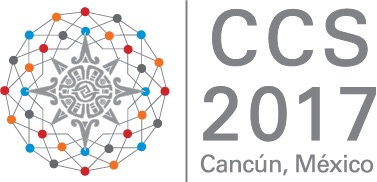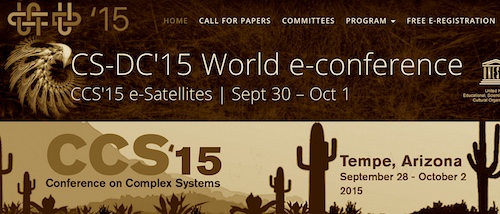CS-DC Meeting on MUTUAL WELLBEING SCIENCE

12 June, 2018
Mutual Wellbeing Science concerns the design of ecosystems for mutual benefit of communities, both at the individual and collective levels. The meeting will include short talks and discussion on:
- What are the main emerging challenges for a Mutual Wellbeing Science.
- Contributions for a roadmap on Mutual Wellbeing Science:
- How to orient a scientific community towards mutual wellbeing.
- What can be the role of the UNESCO UniTwin CS-DC.
Online contributions: Céline Rozenblat, ClaudiaWanderley, Cyrille Bertelle, Linda Boumghar, Masatoshi Funabashi, Maria Eunice Quilici Gonzalez, Yasmin Merali, Pierre Collet, Salma Mesmoudi.
An event hosted by the Doctoral Programme on Complexity Sciences, ISCTE-IUL, Lisbon, with online contributions from the CS-DC community. Program here.

